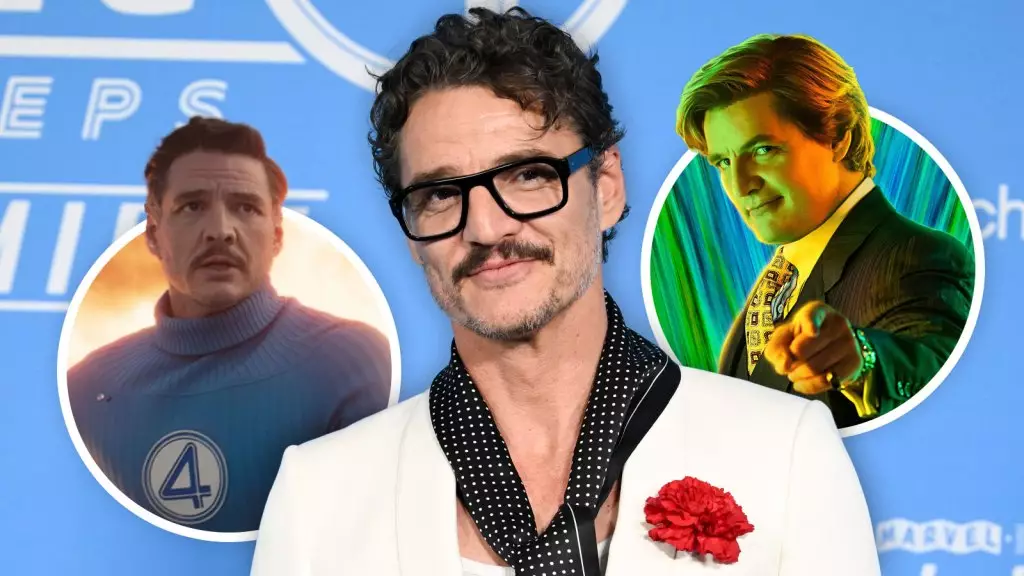Pedro Pascal’s career trajectory reveals a compelling narrative of transformation, both on and off-screen. From his surprise casting in Marvel’s *The Fantastic Four* to his nostalgic reflection on his role in *Wonder Woman 1984*, Pascal’s journey underscores the complex relationship celebrities have with their appearance and the roles they embody. His candidness about his discontent with his look in the Wonder Woman sequel exposes a candid vulnerability—he was “appalled” by his own appearance. Such honesty highlights a broader issue in Hollywood: the often-unspoken pressure on actors to conform to certain aesthetic standards, even when these standards conflict with personal comfort or authenticity. Pascal’s comment about his facial hair—“I grow such shit facial hair”—humanizes him in a way that many fans rarely see, emphasizing that actors are as susceptible to insecurities as anyone else.
His reluctance to alter his look, unless absolutely necessary, speaks volumes about the importance of personal identity in professional settings. The fact that Pascal found his previous portrayal unworthy of revisiting unless mandated suggests a deep commitment to authenticity—albeit one tempered by aesthetic discomfort. It also raises questions about how much emphasis casting decisions place on external appearances versus talent and personality. Pascal’s openness about his appearance underscores a growing need within the industry—and the audience—for authenticity and personal agency over physical presentation.
Challenges and Critics: Navigating the Expectations of Superhero Stardom
Pascal’s move into the superhero universe with *The Fantastic Four: First Steps* is not without its hurdles. The initial backlash—face comments about age and grooming—reflects the often superficial criteria that Hollywood still clings to when judging potential stars. Critics’ comments about Pascal being “too old” or “not right” point to an ageist bias that disrespects talent and experience. Yet Pascal’s response demonstrates resilience; he’s aware of the criticisms but remains unapologetically himself. His acknowledgment that he was formless about his elastic powers—drawing inspiration from an octopus—indicates a strategic—and creative—approach to embodying Reed Richards. It’s an acknowledgment that science-fiction and superhero characters require inventive mindsets rather than mere physical imitation.
Furthermore, his openness about the character’s mental depth suggests that Pascal refuses to be pigeonholed as just a “physique” or a “look.” His emphasis on Reed Richards as a “brain character” reveals an ambition to elevate superhero roles beyond superficial stereotypes, emphasizing intelligence and complexity. Pascal’s candid discussion about these challenges signals a broader shift in how actors view their superhero roles—not just as superficial costume gigs but as opportunities for meaningful storytelling infused with personal creativity.
The Power of Authenticity in Shaping Heroic Legacies
Overall, Pascal’s experiences embody a commitment to authenticity that resonates in today’s entertainment landscape. His honesty about feeling “appalled” by his previous look and his refusal to conform to superficial standards reflect a courageous stance—one that privileges integrity over outward appearances. This stance not only raises the bar for what audiences can expect from their heroes but also challenges the Hollywood norm of superficial perfection. As more stars like Pascal openly critique the industry’s obsession with youth and looks, there’s hope that future portrayals will prioritize substance, intellect, and genuine human experience.
Pascal’s evolving portrayal of Reed Richards, complete with hints about his elastic powers and a focus on cerebral qualities, signals a promising shift toward more layered and authentic superheroes. The industry’s evolving dialogue on aging, appearance, and individual expression, combined with Pascal’s unflinching honesty, underscores an imminent change—one where true heroism is defined not just by powers but by courage, integrity, and self-acceptance.
